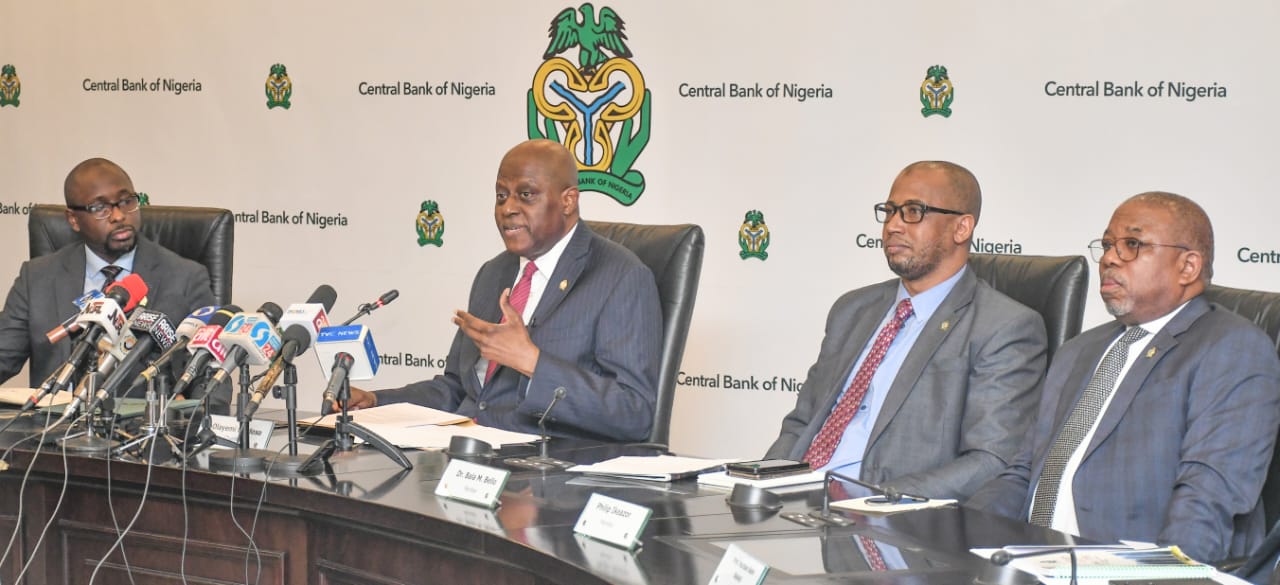
By Sunday Etuka, Abuja
As the Banks in Nigeria are jostling to meet the capital requirements recently set by the Central Bank of Nigeria (CBN), the apex bank must work closely with the Economic and Financial Crimes Commission (EFCC) to ensure that the funds are raised properly.
CBN had on Thursday, March 28, 2024, increased the minimum capital base for commercial banks with international authorisation from N25 billion to N500 billion.
It also increased the minimum capital base for commercial banks with national authorisation to N200 billion, while those with regional authorization were pegged at N50 billion.
The new minimum capital for merchant banks was increased to N50 billion, while the new requirements for non-interest banks with national and regional authorisations were pegged at N20 billion and N10 billion, respectively.
Going by the circular signed by the Director, Financial Policy and Regulation Department, CBN, Mr. Haruna Mustafa, all banks were directed to meet the minimum capital requirements within 24 months (two years) commencing from April 1, 2024, and terminating on March 31, 2026.
The Development, however, did not come as a shock to the banks operating in the country, since the move was hinted at in November last year by the CBN Governor, Mr. Olayemi Cardoso in his address at the Annual Bankers’ Dinner in Lagos.
The decision for the recapitalization of the banks, as advanced by the CBN was to enhance the banks’ resilience, solvency, and capacity to continue supporting the growth of the Nigerian economy.
Cardoso had told the bankers that the recapitalisation was necessary to position the Nigerian banks to effectively play their intermediation role in the $1 trillion economy of President Bola Tinubu’s administration.
Recall, the recapitalisation of banks in Nigeria was also carried out in 2005 under the leadership of Prof. Charles Soludo, the then CBN Governor.
In July 2004, Soludo announced that the minimum capital requirements for banks would be raised to N25 billion ($195 million) from the then minimum of N2 billion by the end of 2005.
The decision, according to him, was aimed at increasing the banks’ capital bases and improving their financial stability.
The recapitalization process involved the consolidation of banks through mergers and acquisitions, which aimed to strengthen the banks’ financial positions and enable them to face financial challenges in the global market.
The recapitalization also freed Nigerian banks from reliance on public sector funds and better equipped them to finance larger projects within key sectors such as oil, gas, and telecommunications.
Additionally, the reforms resulted in improved banks’ performance, increased lending to the private sector, and growth in the non-oil sector of the economy.
However, the recapitalization also had some adverse effects, such as the loss of business for some banks, which led to a loss of income and a decline in public confidence in the banking industry.
While the upward review of the minimum capital base for banks is widely supported, and also necessary for the CBN to monitor and ensure compliance with the new requirements, greater attention should be paid to how this money would be raised by the banks.
This is because the banks in Nigeria are known for illegal deduction of depositors’ money. Therefore, in a bid to meet up with the requirements, banks may resort to the unwholesome act of deducting customers’ deposits.
The apex bank had taken several steps to prevent commercial banks that are operating in the country from engaging in excessive charges and illegal deductions of customers, but the fraudulent act continues unabated.
For instance, in 2017, CBN recovered N51.9 billion illegally deducted by commercial banks and returned it to the customers. about 10,548 complaints were received and the amounts recovered were from 5,746 resolved cases.
In 2018, the apex bank also recovered and returned the sum of N65bn to bank customers.
In 2021, CBN facilitated the recovery of N89.2b for 23,526 bank customers as of June 2021 following their complaints over illegal charges and withdrawals.
In 2022/2033, the CBN helped aggrieved customers recover N115.45 billion and$22.794, following complaints on illegal deductions and failed or fraudulent transactions.
Data released by the bank showed that about 35,453 complaints were received and 33,437 were resolved.
Also last year, the House of Representatives ordered a probe into allegations of excessive charges and illegal deductions by Commercial Banks in Nigeria. Thus, the CBN must monitor them closely as they struggle to meet the new capital requirements.
Secondly, while the recapitalization of the banks would strengthen the system against potential risks in an increasingly globalised world, the temptation for illicit financial flow from outside the country would be high. Consequently, working with the CBN, the EFCC must continue to shine its eagle eyes on how the banks will raise the money.
Nigeria is among the world’s largest countries known for illicit financial flow, and banks and other financial institutions in the country are often accused of providing safe havens for illicit financial transactions across national and international boundaries, consequently, should be closely monitored during this period to ensure that the capital would not be raised through illegal means.






